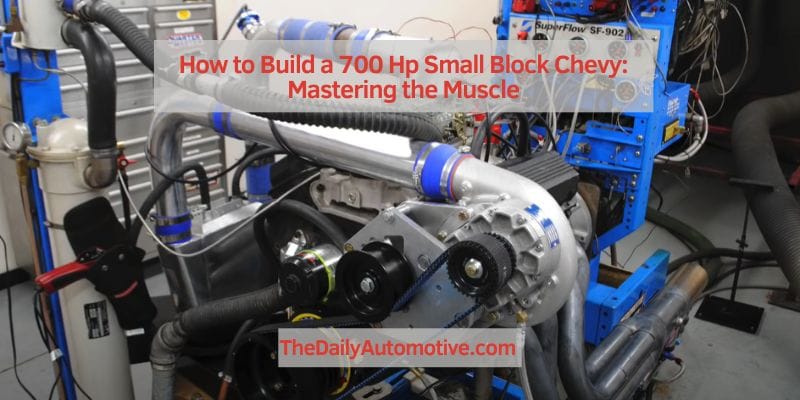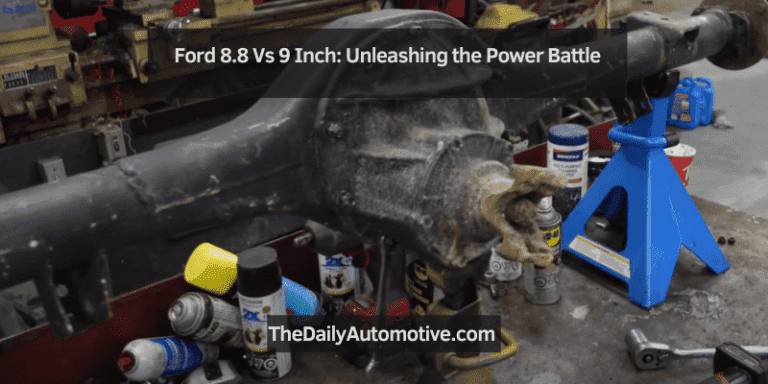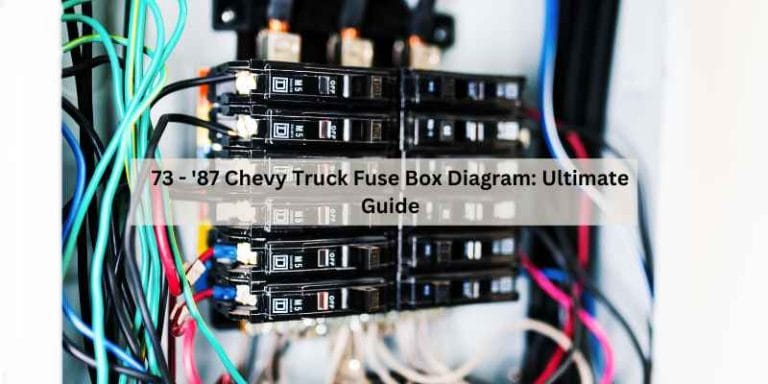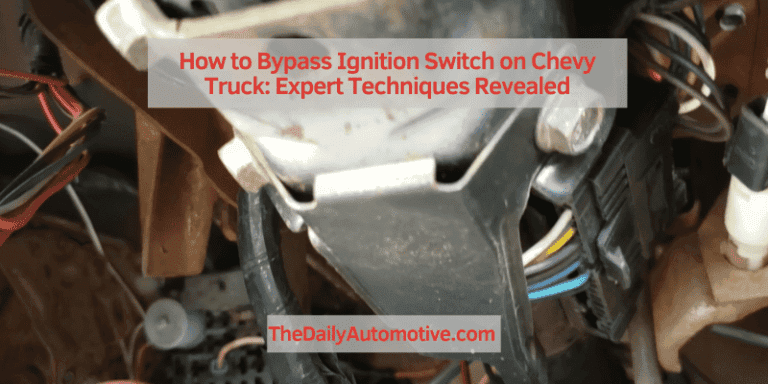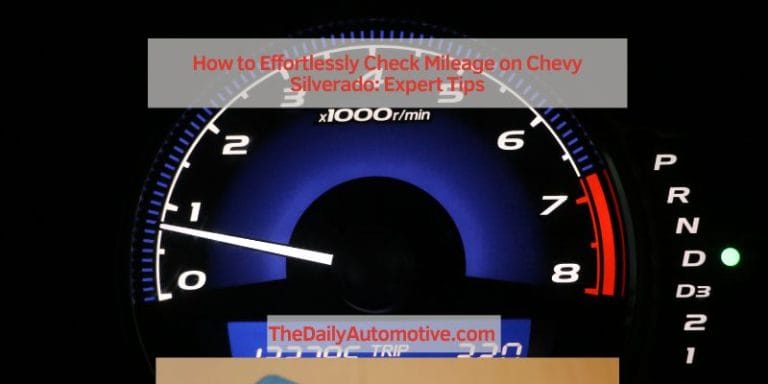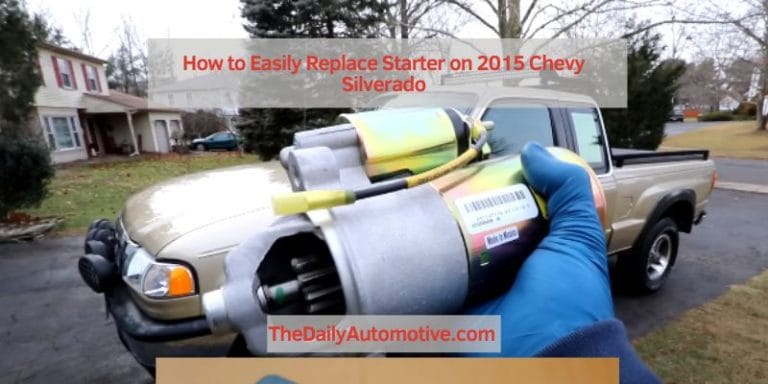How to Build a 700 Hp Small Block Chevy: Mastering the Muscle
To build a 700 hp small block Chevy, start with high-performance components like a forged crankshaft and aluminum cylinder heads, select the proper piston compression ratio, and optimize the valvetrain to ensure proper airflow and combustion. Achieving 700 hp from a small block Chevy engine requires careful selection and integration of high-performance components.
From the internal workings of the engine to the external components, precision is key. By focusing on key aspects such as the crankshaft, cylinder heads, piston compression ratio, and valvetrain, you can effectively optimize the engine for high horsepower output.
This comprehensive approach ensures that each component works in harmony to achieve the desired performance level, delivering a powerful and responsive small block Chevy engine.
Understanding The Chevy Small Block Engine
The small block Chevy engine is a true powerhouse, known for its durability and performance. For those looking to push the limits of their small block Chevy, achieving 700 horsepower is the ultimate goal. To understand how to achieve this feat, it’s essential to dive into the fundamentals of the Chevy small block engine and identify the key components for maximizing horsepower.
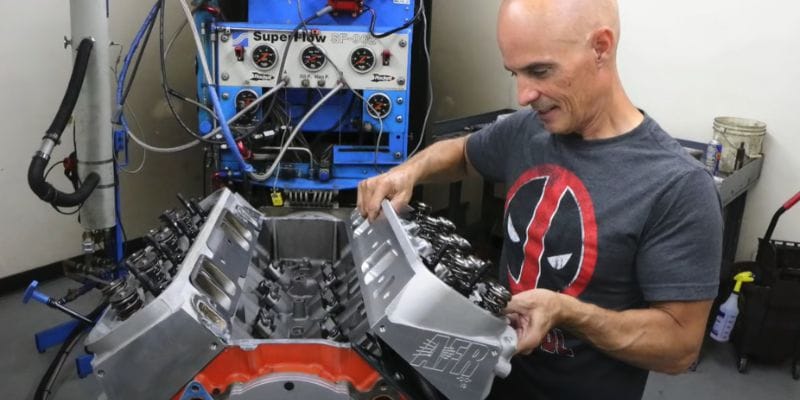
Exploring The Fundamentals Of The Chevy Small Block Engine
The Chevrolet small block engine has been a cornerstone of performance for decades. Its enduring popularity and widespread use in a variety of applications are a testament to its robust design and potent capabilities. At the heart of the small block Chevy is a relatively compact and lightweight architecture that belies its extraordinary power potential. This iconic engine has evolved through various iterations, but its fundamental configuration and design principles have remained largely consistent.
Identifying The Key Components For Maximizing Horsepower
Building a 700 hp small block Chevy engine requires a meticulous approach and an eye for detail. Key components such as cylinder heads, camshaft, intake manifold, and pistons play a critical role in maximizing horsepower. High-quality components and precise tuning are essential for extracting the formidable power potential of the small block Chevy engine.
Choosing The Right Parts
When building a 700 hp small block Chevy, choosing the right parts is essential to achieving the desired power and reliability. Selecting high-quality components tailored to the specific needs of your build will determine the ultimate success of your project. Whether it’s the selection of a camshaft, cylinder heads, or induction system, each part plays a crucial role in realizing the full potential of your engine.
Selecting The Best Performance Parts For A 700 Hp Build
When aiming for 700 hp from a small block Chevy, it is crucial to carefully consider each component to ensure the engine operates at its peak performance. From the block to the valvetrain, every part must be chosen with precision to withstand the demands of such high power levels. Here are some critical aspects to focus on:
Exploring The Critical Components For Power And Reliability
Building a 700 hp small block Chevy requires an in-depth understanding of the critical components that contribute to power and reliability. Ensuring that each part is designed to handle the increased stress and power output is paramount. The following components are integral to achieving both power and reliability:
- High-strength forged pistons and connecting rods
- Performance cylinder heads with optimized airflow
- A high-lift, long-duration camshaft for increased power
- An efficient intake manifold and carburetor or fuel injection system
- A robust, reliable ignition system for consistent spark
By focusing on these critical components, you can lay the foundation for a 700 hp small block Chevy build that delivers exceptional power and reliability.
Engine Assembly And Machining
When it comes to building a powerful small block Chevy engine, the machining and assembly process is crucial in achieving the desired performance. The precision and attention to detail during this phase significantly impact the engine’s output and reliability. In this section, we will delve into the essential aspects of engine assembly and machining in the pursuit of constructing a 700 Hp small block Chevy.
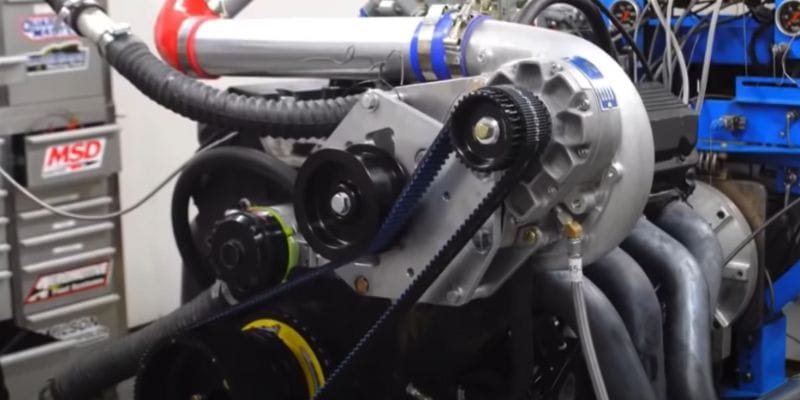
Discussing The Machining And Assembly Process
Understanding The Importance Of Precision And Attention To Detail
- Boring and Honing: The cylinder bores are precisely machined to the specified diameter and surface finish, ensuring optimal ring seal and piston fitment.
- Deck Surfacing: The block’s deck surface is machined to achieve the desired compression ratio and ensure a proper seal with the cylinder heads.
- Main Bearing Bore Alignment: Precise machining of the main bearing bores ensures proper alignment and support for the crankshaft.
- Balancing: The crankshaft and connecting rods are balanced to minimize vibrations and enhance the engine’s durability and smooth operation.
- Rod and Main Journal Machining: Accurate machining of the crankshaft’s bearing journals and connecting rod big ends is critical for optimal oil clearance and component longevity.
- Valvetrain Machining: Precision machining of the valve seats and valve guides ensures proper valve sealing and longevity under high RPM and load conditions.
- Combustion Chamber and Porting: Machining the combustion chambers and intake/exhaust ports to the desired shape and size optimizes airflow and combustion efficiency.
- Crankshaft and Piston Assembly: Careful installation and torque specifications for the crankshaft, pistons, and connecting rods ensure proper clearances and smooth operation.
- Cylinder Head Installation: Attentive torque sequencing and proper gasket installation are vital for achieving consistent and reliable cylinder head sealing.
- Valvetrain Adjustment: Precise adjustment and setting of valve lash and timing play a pivotal role in engine performance and longevity.
Tuning And Testing
Tuning and testing are essential stages in the process of building a 700 hp small block Chevy engine. The tuning process involves maximizing power output, while testing ensures that the engine performs at its peak level. Both stages are crucial in achieving the desired power and performance from the engine.
Exploring The Tuning Process For Maximizing Power Output
When it comes to maximizing power output in a 700 hp small block Chevy, the tuning process plays a vital role. This involves adjusting various parameters such as fuel mixture, ignition timing, and air intake to optimize the engine’s performance. Fine-tuning of these parameters is a meticulous and iterative process, requiring careful consideration and expertise.
- Adjusting fuel mixture ratios
- Optimizing ignition timing
- Fine-tuning air intake
- Calibrating performance components
Discussing The Testing And Validation Of The 700 Hp Small Block Chevy
Testing and validation are critical steps to ensure that the 700 hp small block Chevy engine delivers the expected performance. Thorough testing involves simulating real-world conditions and verifying the engine’s power output and durability. This step ensures that the engine operates reliably and consistently at its peak power level.
- Dynamometer testing to measure power output
- Performance evaluation under varying loads
- Reliability testing for endurance and sustainability
- Validation of power output and torque
Mastering The Muscle
When it comes to building a high-performance small block Chevy, mastering the muscle is key. Achieving 700 hp from a small block engine is a testament to advanced engineering and precise tuning. Here’s a look at the advanced techniques and driving experience behind unleashing the full potential of a 700 hp small block Chevy.
Applying Advanced Techniques For Achieving 700 Hp
Building a 700 hp small block Chevy engine requires a combination of advanced techniques and high-quality components. From selecting the right cylinder heads and camshafts to optimizing fuel delivery and ignition timing, every aspect of the engine must be meticulously tuned to maximize power output.
- Utilize high-flow cylinder heads designed for maximum airflow and combustion efficiency.
- Invest in a high-performance camshaft tailored to the engine’s powerband and intended application.
- Opt for a forged rotating assembly to withstand the rigors of high-RPM operation and increased power levels.
- Implement precise fuel and ignition mapping using a standalone engine management system for fine-tuning.
Understanding The Driving Experience And Performance Capabilities
With 700 hp under the hood, the driving experience of a small block Chevy is transformed into a thrilling adventure. The instant throttle response and relentless acceleration deliver an exhilarating sensation, while the engine’s performance capabilities set new standards for on-road and track performance.
- Experience seamless acceleration and impressive power delivery throughout the rev range.
- Enjoy the confidence-inspiring handling and corner-exiting prowess of a well-balanced high-horsepower setup.
- Explore the limits of traction and thrill of launching a 700 hp powerhouse with precision and control.
Frequently Asked Questions For How To Build A 700 Hp Small Block Chevy
How Can I Increase The Horsepower Of My Small Block Chevy?
To boost your Small Block Chevy’s horsepower to 700, consider upgrading components such as the camshaft, cylinder heads, and intake manifold. A high-flow exhaust system and performance tuning are also essential for achieving this power level.
What Size Camshaft Should I Use For A 700 Hp Small Block Chevy?
To reach 700 horsepower, a camshaft with a duration of around 240-250 degrees at 0. 050″ lift is recommended for a Small Block Chevy. The specific camshaft selection may vary based on the engine’s components and intended use.
What Kind Of Fuel System Is Required For A 700 Hp Small Block Chevy?
A high-performance fuel system, including a high-flow fuel pump, larger fuel injectors, and a reliable regulator, is essential for a 700 Hp Small Block Chevy. Additionally, utilizing a quality ECU and proper fuel tuning is crucial to ensure optimal performance.
Can I Achieve 700 Hp Without Upgrading The Internal Components Of My Small Block Chevy?
It’s unlikely to reach 700 Hp with a Small Block Chevy without upgrading internal components such as the pistons, connecting rods, and crankshaft. These components help ensure the engine’s strength and durability to handle the increased power output.
Conclusion
Building a 700 Hp Small Block Chevy is an exciting and challenging project for any car enthusiast. With the right knowledge, tools, and resources, achieving this level of power is entirely possible. Utilizing proven techniques and quality components will ensure a successful outcome.
Keep learning, stay determined, and enjoy the satisfying results of your hard work.

